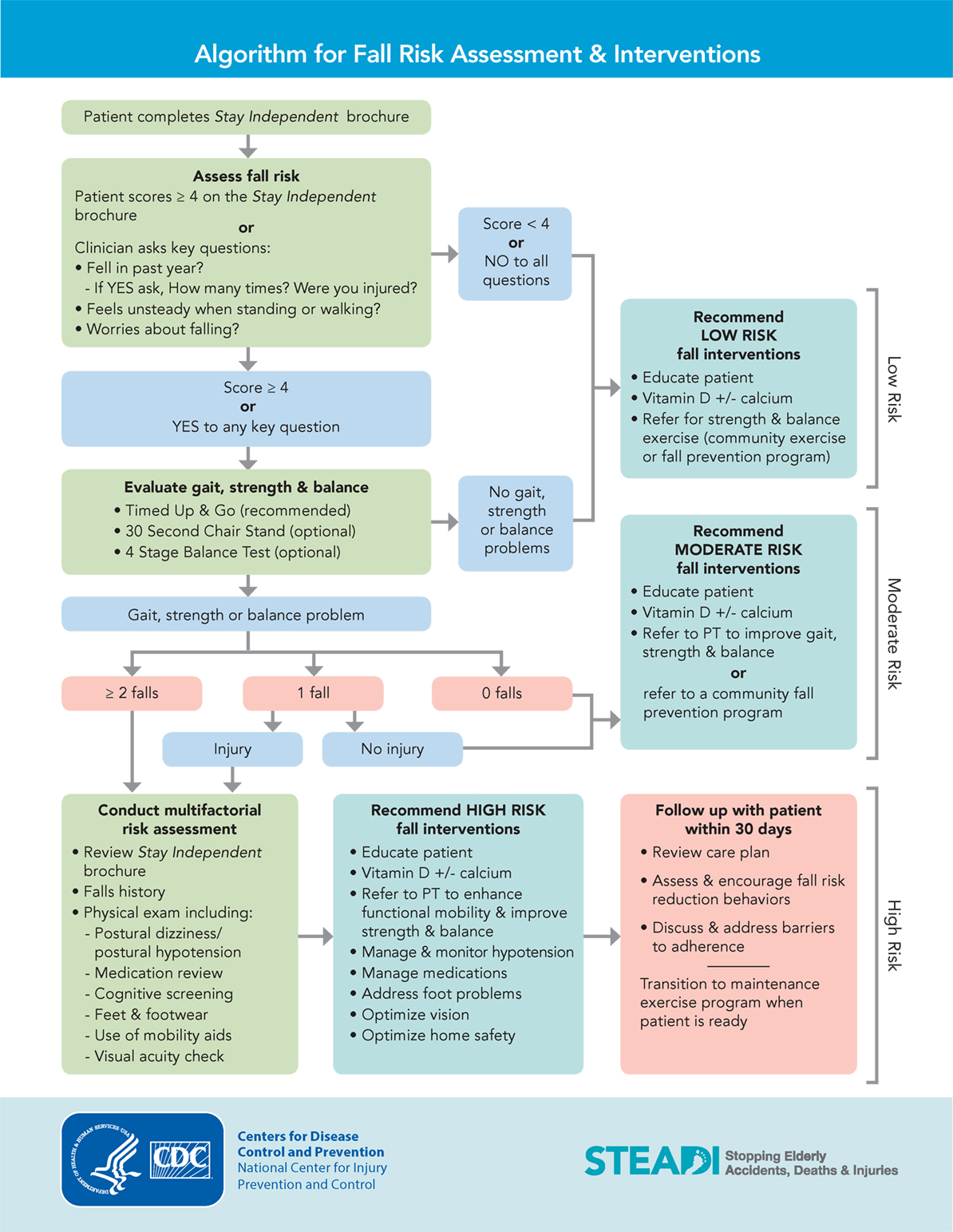The 9-Minute Rule for Dementia Fall Risk
The 9-Minute Rule for Dementia Fall Risk
Blog Article
See This Report on Dementia Fall Risk
Table of ContentsHow Dementia Fall Risk can Save You Time, Stress, and Money.The Best Strategy To Use For Dementia Fall RiskThe Basic Principles Of Dementia Fall Risk Dementia Fall Risk Can Be Fun For EveryoneThe smart Trick of Dementia Fall Risk That Nobody is Discussing
Guarantee that there is an assigned location in your clinical charting system where personnel can document/reference scores and document pertinent notes related to drop prevention. The Johns Hopkins Autumn Threat Analysis Device is one of many tools your personnel can utilize to aid protect against adverse clinical occasions.Person falls in health centers prevail and devastating unfavorable occasions that linger in spite of decades of initiative to lessen them. Improving interaction across the assessing nurse, treatment group, patient, and person's most involved pals and family members might strengthen autumn prevention efforts. A team at Brigham and Female's Medical facility in Boston, Massachusetts, sought to establish a standard autumn prevention program that focused around improved interaction and client and family members interaction.

The innovation group emphasized that successful application depends on individual and team buy-in, assimilation of the program into existing workflows, and integrity to program processes. The team noted that they are grappling with how to guarantee continuity in program application throughout durations of dilemma. Throughout the COVID-19 pandemic, for instance, a rise in inpatient drops was connected with constraints in individual involvement in addition to constraints on visitation.
Everything about Dementia Fall Risk
These incidents are normally considered preventable. To implement the intervention, organizations need the following: Access to Autumn TIPS resources Fall pointers training and re-training for nursing and non-nursing staff, consisting of new nurses Nursing process that permit client and family involvement to perform the drops evaluation, ensure use the avoidance plan, and carry out patient-level audits.
The results can be highly harmful, typically speeding up person decrease and causing longer healthcare facility remains. One study approximated stays enhanced an added 12 in-patient days after a person fall. The Loss TIPS Program is based on interesting people and their family/loved ones throughout 3 major procedures: analysis, individualized preventative treatments, and bookkeeping to make sure that people are engaged in the three-step fall prevention procedure.
The individual evaluation is based on the Morse Autumn Scale, which is a validated fall risk analysis tool for in-patient healthcare facility setups. The range consists of the 6 most usual factors individuals in medical facilities fall: the client loss history, high-risk problems (consisting of polypharmacy), use IVs and various other outside devices, mental condition, gait, and flexibility.
Each risk aspect relate to several workable evidence-based interventions. The registered nurse creates a plan that integrates the interventions and is noticeable to the treatment group, individual, and family on a laminated poster or printed aesthetic aid. Registered nurses create the strategy while consulting with the patient and the person's household.
The Of Dementia Fall Risk
The poster acts as an interaction device with other participants of the client's care group. Dementia Fall Risk. The audit element of the program includes examining the person's knowledge of their risk factors and avoidance plan at the device and navigate to these guys medical facility levels. Registered nurse champs conduct at the very least five individual meetings a month with patients and their households to examine for understanding of the fall avoidance strategy

An estimated 30% of these drops result in injuries, which can range in extent. Unlike other negative occasions that call for a standard professional feedback, loss avoidance depends extremely on the needs of the client.
A Biased View of Dementia Fall Risk

Based on bookkeeping results, one website had 86% conformity and two websites had over 95% conformity. A cost-benefit analysis of the Loss pointers program in 8 healthcare facilities approximated that the program expense $0.88 per client to implement and led to cost savings of $8,500 per 1000 patient-days in direct expenses related to the avoidance of 567 tips Dementia Fall Risk over three years and eight months.
According to the technology group, companies thinking about carrying out the program must carry out a preparedness evaluation and falls prevention voids analysis. 8 In addition, organizations must guarantee the needed framework and process for application and create an implementation plan. If one exists, the company's Loss Prevention Job Pressure should be associated with planning.
How Dementia Fall Risk can Save You Time, Stress, and Money.
To start, companies should guarantee conclusion of training components by registered nurses and nursing aides - Dementia Fall Risk. Medical facility team must assess, based upon the demands of a hospital, whether to utilize a digital health and wellness record hard copy or paper version of the autumn avoidance plan. Applying teams must recruit and train registered nurse champions and establish procedures for bookkeeping and coverage on autumn data
Staff require to be associated with the procedure of redesigning the operations to involve individuals and family in the evaluation and prevention plan procedure. Solution ought to be in place to make sure that systems can understand why a fall occurred and remediate the cause. More especially, registered nurses ought to have networks to supply continuous responses to both team and system management so they can change and boost autumn prevention process and communicate systemic problems.
Report this page